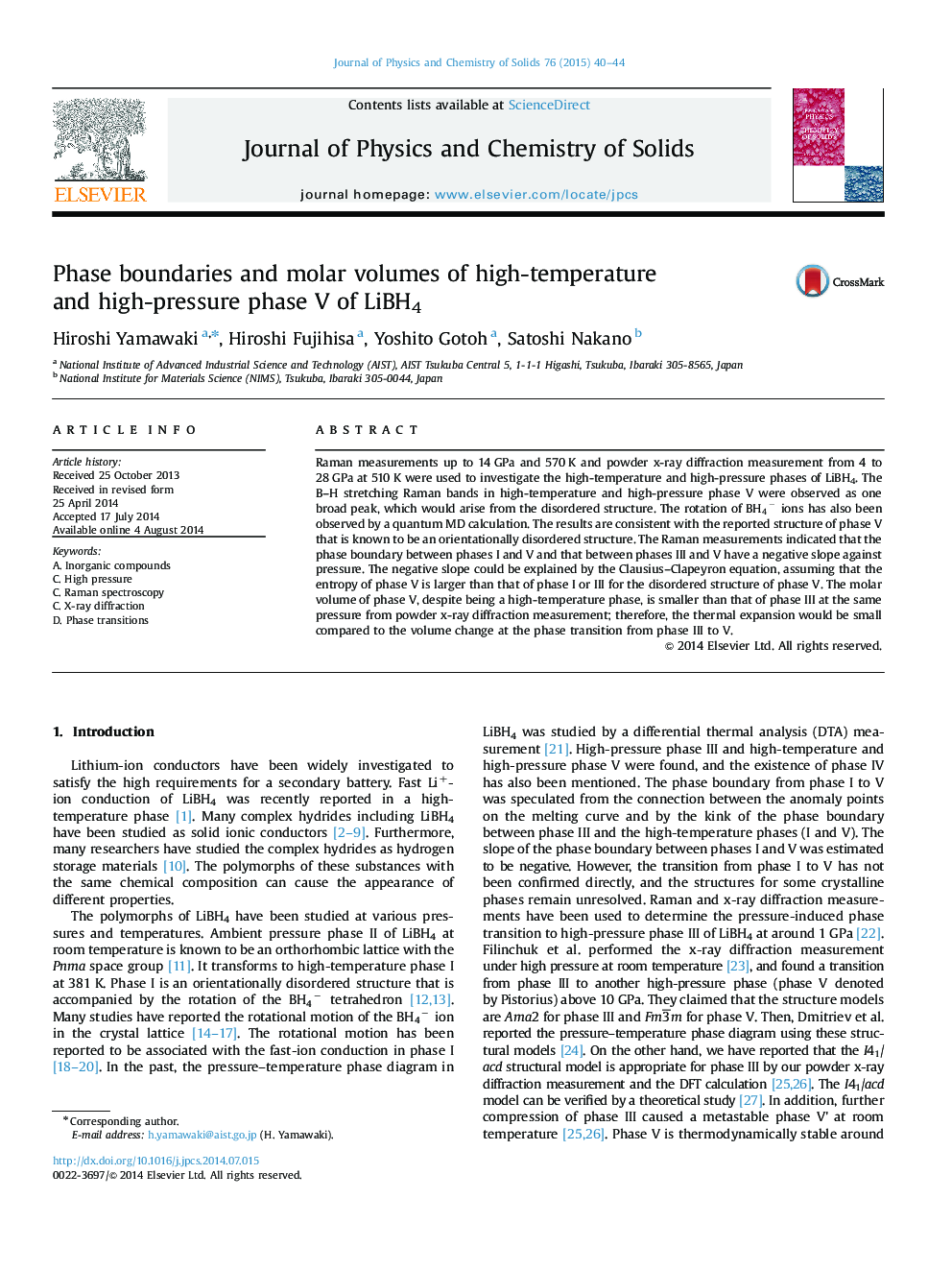| Article ID | Journal | Published Year | Pages | File Type |
|---|---|---|---|---|
| 7921009 | Journal of Physics and Chemistry of Solids | 2015 | 5 Pages |
Abstract
Raman measurements up to 14Â GPa and 570Â K and powder x-ray diffraction measurement from 4 to 28Â GPa at 510Â K were used to investigate the high-temperature and high-pressure phases of LiBH4. The B-H stretching Raman bands in high-temperature and high-pressure phase V were observed as one broad peak, which would arise from the disordered structure. The rotation of BH4â ions has also been observed by a quantum MD calculation. The results are consistent with the reported structure of phase V that is known to be an orientationally disordered structure. The Raman measurements indicated that the phase boundary between phases I and V and that between phases III and V have a negative slope against pressure. The negative slope could be explained by the Clausius-Clapeyron equation, assuming that the entropy of phase V is larger than that of phase I or III for the disordered structure of phase V. The molar volume of phase V, despite being a high-temperature phase, is smaller than that of phase III at the same pressure from powder x-ray diffraction measurement; therefore, the thermal expansion would be small compared to the volume change at the phase transition from phase III to V.
Keywords
Related Topics
Physical Sciences and Engineering
Materials Science
Electronic, Optical and Magnetic Materials
Authors
Hiroshi Yamawaki, Hiroshi Fujihisa, Yoshito Gotoh, Satoshi Nakano,
